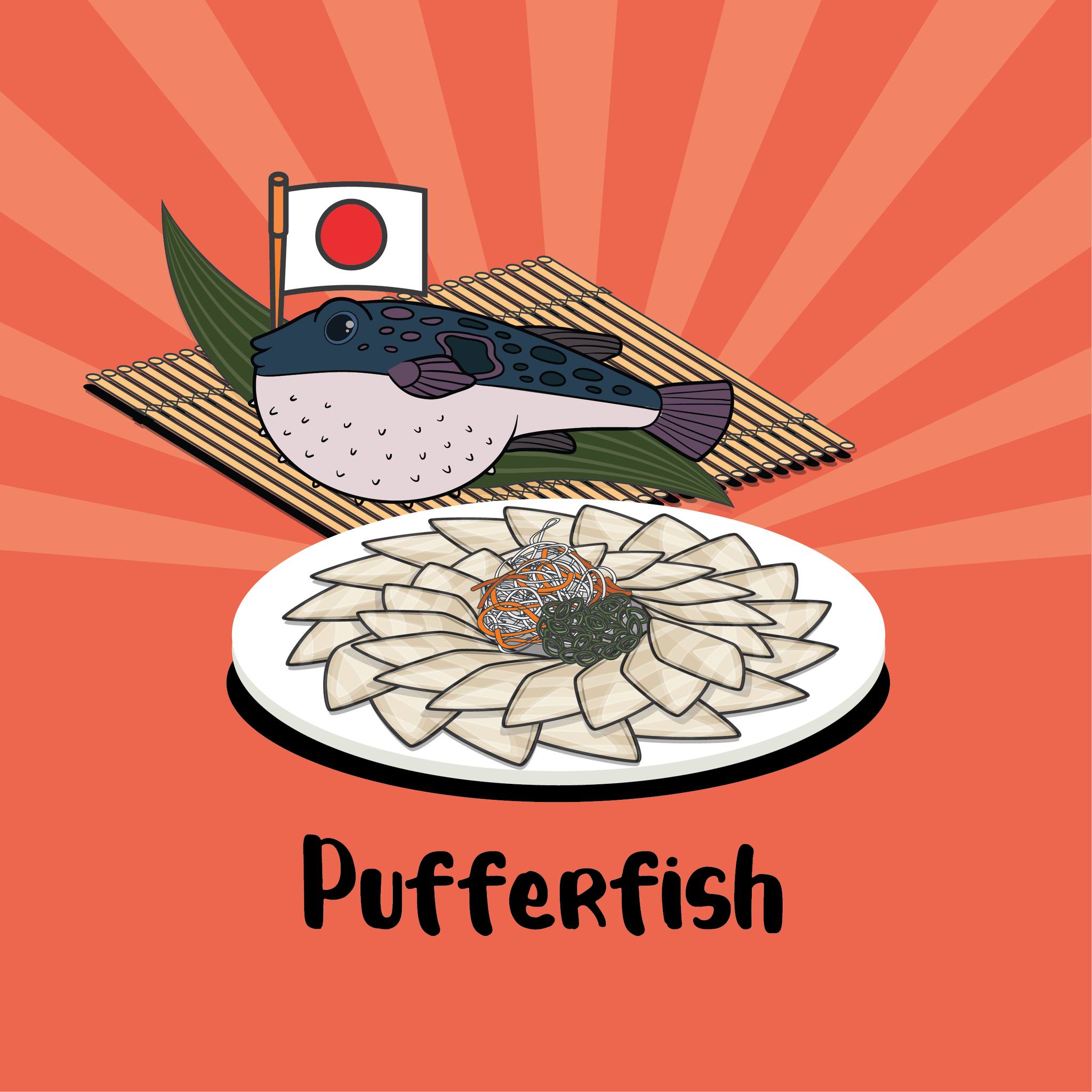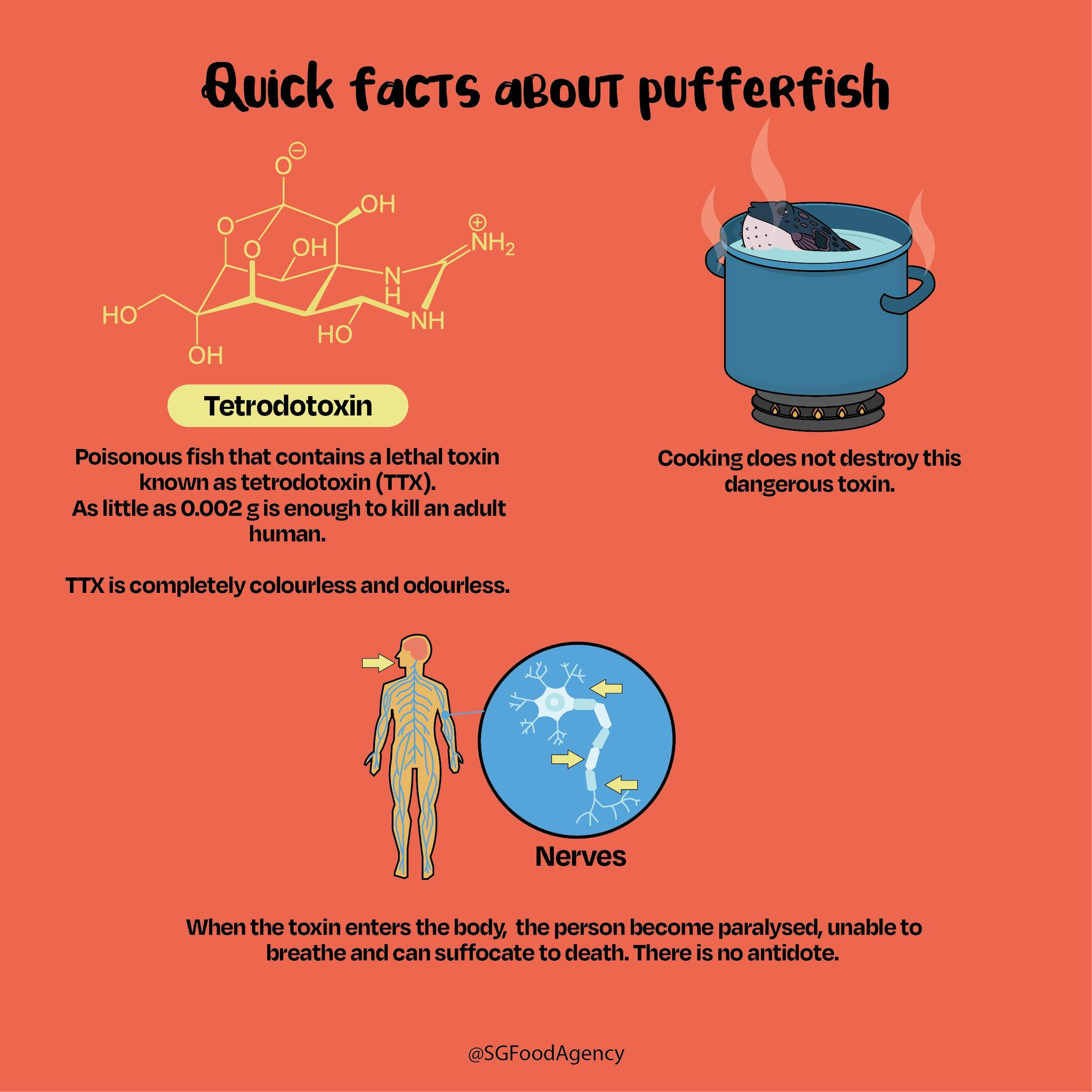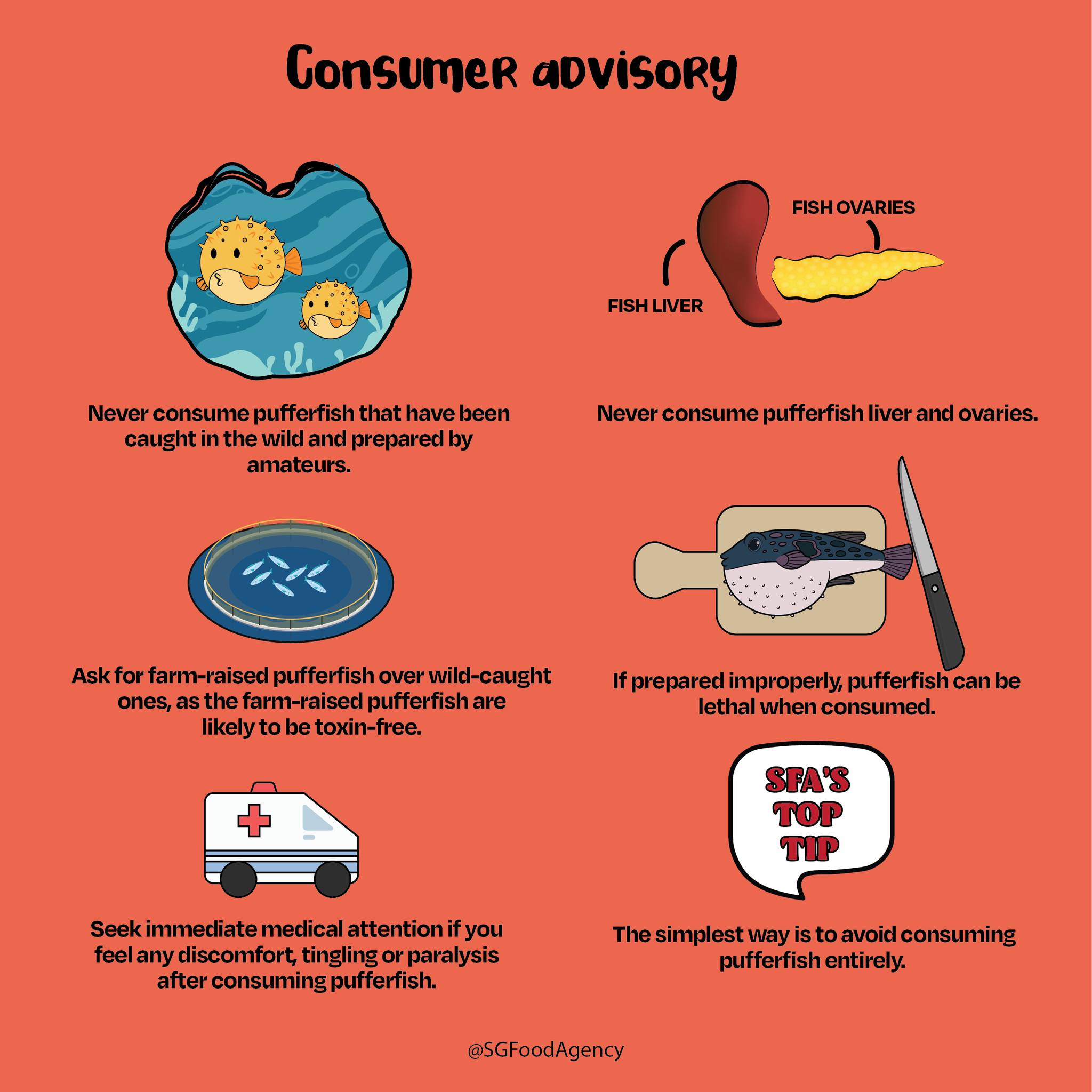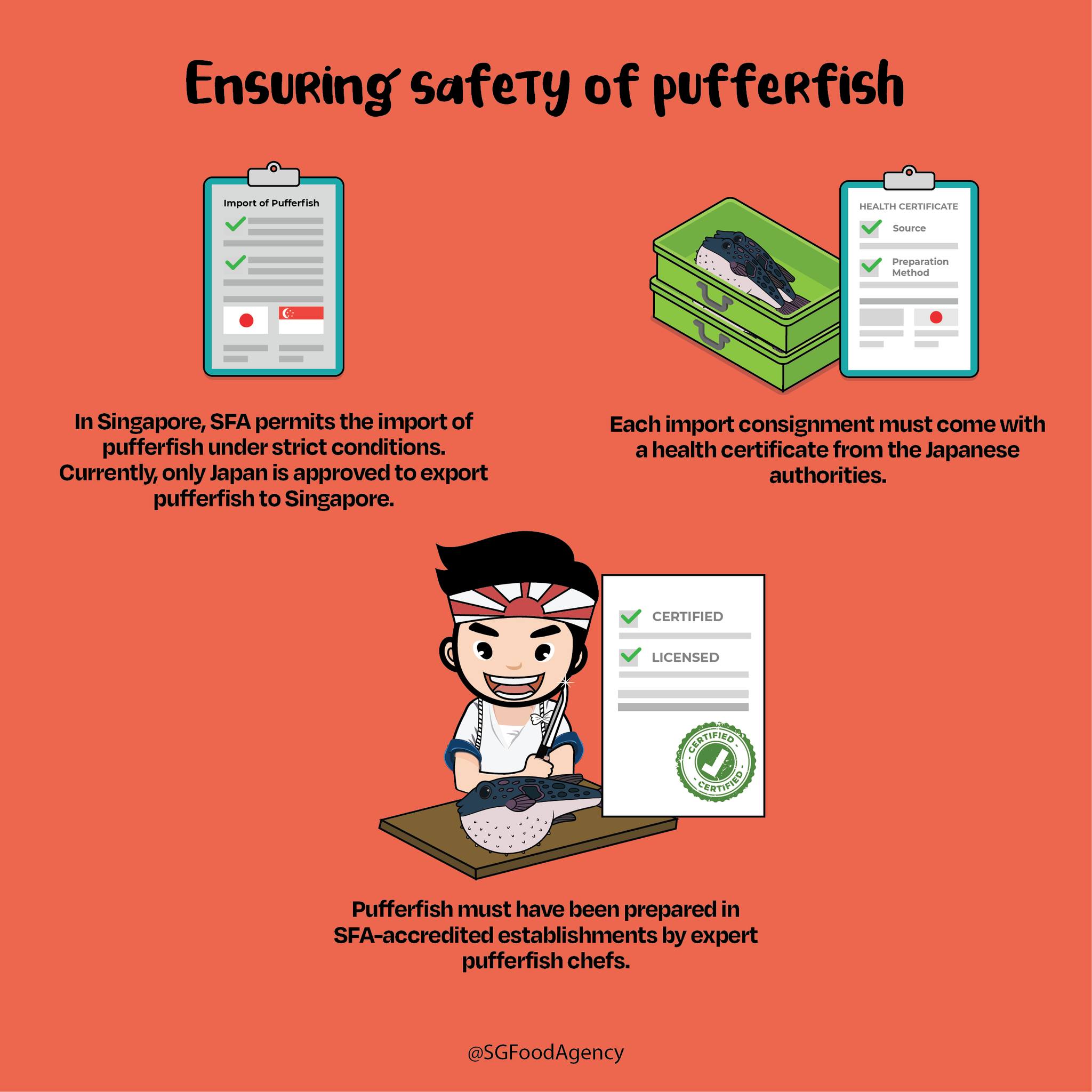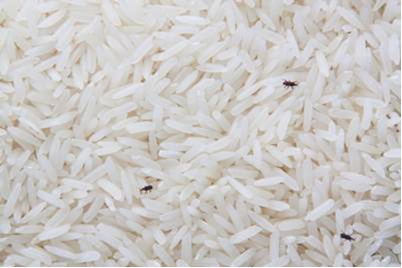Why are Pufferfish Poisonous?
Pufferfish are not born poisonous. Pufferfish have evolved to accumulate TTX in their bodies, as a defence mechanism against getting eaten by bigger fish. The bacteria that produce the toxin are eaten by plankton, which are in turn eaten by snails and worms. Pufferfish then eat these snails and worms, gradually absorbing and accumulating the TTX in their bodies. Most of the toxin accumulates in the liver and ovaries, though this depends on the species of the pufferfish.
This means that farmed pufferfish which have never eaten any prey containing TTX are not poisonous. Therefore, the farming of pufferfish in enclosed areas and fed only TTX-free pellets, is becoming increasingly popular.
Ensuring safety of pufferfish in Singapore
In Singapore, SFA permits the import of pufferfish under strict conditions. Currently, only Japan is approved to export pufferfish to Singapore. The pufferfish must have been prepared in SFA-accredited establishments by expert pufferfish chefs which have been certified and licensed by the government of Japan. These chefs have undergone training and examinations to ensure they have the required skills and knowledge to prepare pufferfish safely.
As Singapore, unlike Japan, does not have a pufferfish preparation license system, SFA requires imported pufferfish to be pre-prepared by the licensed chefs. For wild pufferfish which are of a higher risk, only the prepared muscle fillet is allowed for import. For farmed pufferfish, which are TTX-free, the muscles, skin, fins and milt may be imported.
Each import consignment must come with a health certificate from the Japanese authorities, which has detailed information on where the fish were sourced from and prepared. SFA also tests these imported pufferfish for TTX as part of our food surveillance programme.
However, to ensure safety, both the food industry and consumers must play their part
NEVER consume any pufferfish or related fish, like porcupine fish, that have been caught in the wild and prepared by amateurs. Globally, this is the most common reason for TTX poisonings and deaths.
Never consume pufferfish liver and ovaries. These are the organs that accumulate the most TTX.
Ask for farm-raised pufferfish over wild-caught ones, as the farm-raised pufferfish are likely to be toxin-free.
If prepared improperly, pufferfish can be lethal when consumed.
Seek immediate medical attention if you feel any discomfort, tingling or paralysis after consuming pufferfish.
Top tip: The simplest way is to avoid consuming pufferfish entirely.

